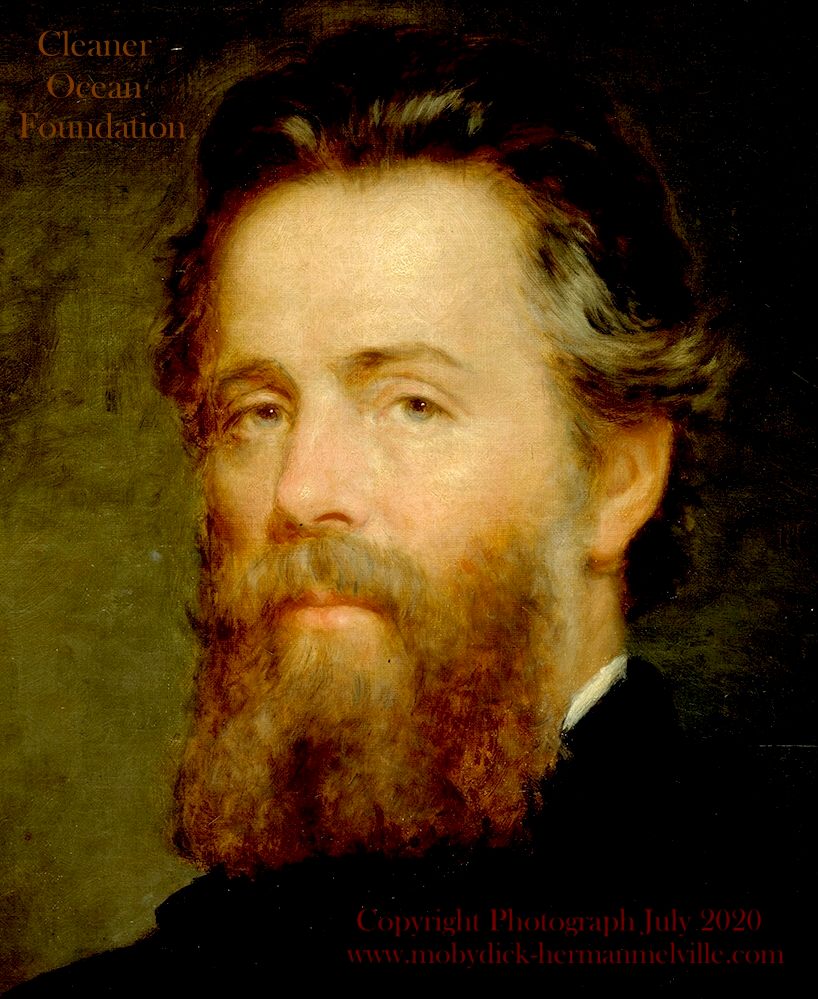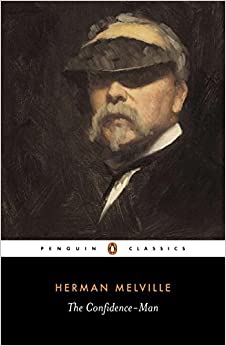|
THE CONFIDENCE MAN - MASQUERADE
Please use our A-Z INDEX to navigate this site
|
Herman Melville is best known as the author of a novel abut what we'd now consider an illegal activity; the commercial hunting of whales for oil and meat. In capturing the whaling industry at its peak, showcasing the rebellious white whale, in our view he was lobbying for the whales, the innocent victims in his story. Many year after his death in New York City in 1891, he posthumously came to be regarded as one of the great American writers.
Herman Melville was born in New York City on the 1st of August 1819. He died on the 28th of September 1891. He was an American novelist, short story writer and poet of the American Renaissance period. Among his best-known works are Moby-Dick (1851), Typee (1846), a romanticized account of his experiences in Polynesia, and Billy Budd, Sailor, a posthumously published novella. The centennial of his birth in 1919 was the starting point of a Melville revival, when Moby-Dick began to be considered one of the great American novels.
THE CONFIDENCE MAN
The Confidence-Man: His Masquerade, first published in New York on April Fool's Day 1857, is the ninth book and final novel by American writer
Herman
Melville. The book was published on the exact day of the novel's setting.
The 2008 movie The Brothers Bloom, starring Adrien Brody, Mark Ruffalo and Rachel Weisz, borrows some of the plot and makes numerous references to the book: One of the characters is named Melville, the steamer ship is named Fidèle, and the initial mark refers to these coincidences.
MOBY DICK - OUR FAVOURITE
Herman
Melville's Moby
Dick, is the story of a great white sperm whale that fought back at
whalers who tried to harpoon him. The idea for Moby-Dick
came to Herman Melville after
he spent time on a commercial whaler, where stories abounded of the
sinking of the Essex in 1821 and Mocha
Dick, a giant sperm whale that sank around 20 ships, before being
harpooned in 1838.
LINKS & REFERENCE
https://www.gutenberg.org/ https://lansingburghhistoricalsociety.org/ https://www.facebook.com/Herman-Melvilles-Arrowhead-123989551008957/ https://www.mobydick.org/ https://melvillesociety.org/ http://melville.org/
Please use our A-Z INDEX to navigate this site
|
|
This website is Copyright © 2020 Cleaner Ocean Foundation Ltd and Jameson Hunter Ltd
|









